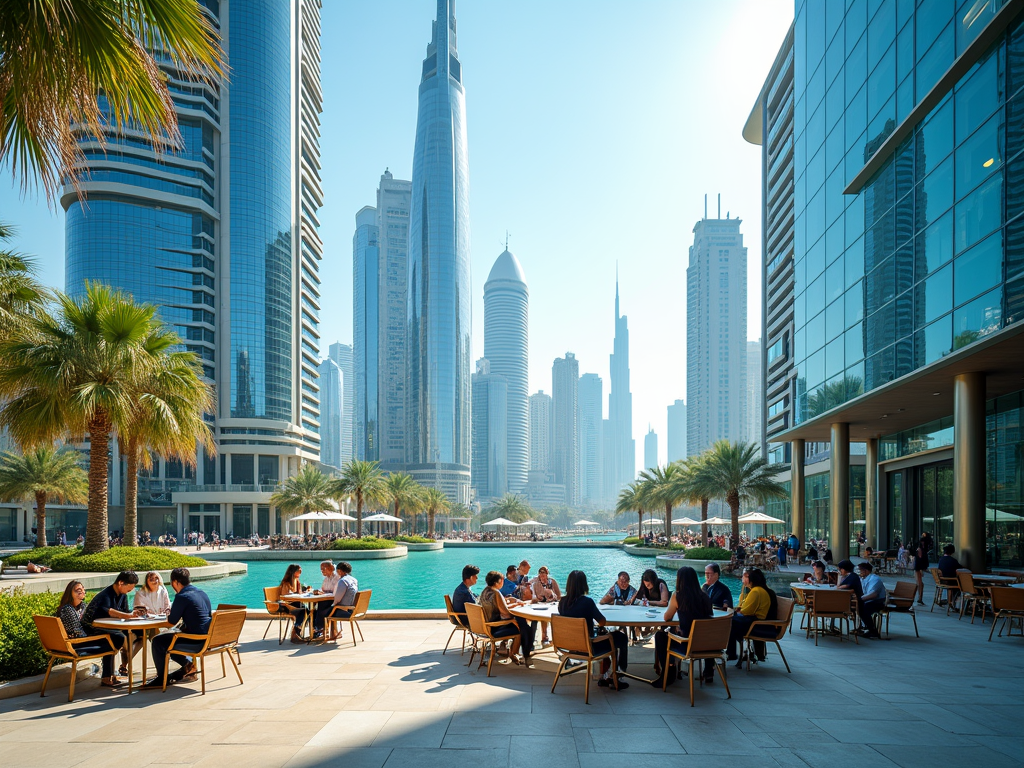Dubai’s tax-free zones have become a lucrative attraction for foreign investors seeking favorable business conditions. These zones offer various benefits, including zero corporate and income tax, which significantly enhances the return on investment. The combination of strategic location, infrastructure, and regulatory ease creates an appealing environment that draws entrepreneurs and multinational companies alike. This article will explore how Dubai’s tax-free zones influence foreign investment, the various types of zones available, and the future implications for foreign businesses in the region.
Understanding Dubai’s Tax-Free Zones

Dubai hosts numerous tax-free zones, each tailored to specific industries, making it easier for foreign investors to establish businesses without the heavy financial burdens typically associated with start-ups. These zones allow foreign companies to fully own their enterprises, unlike the general requirement of partnering with a local emirate sponsor outside of these designated areas. From technology and media to finance and logistics, each zone offers its unique advantages and facilities designed to foster business growth. Key characteristics include:
- 100% foreign ownership
- 100% repatriation of profits
- No import or export duties
- Flexible labor laws
- Fast company registration processes
The combination of these features positions Dubai’s tax-free zones as desirable destinations for foreign investors looking to tap into the Middle Eastern market without the usual constraints of international business.
Types of Tax-Free Zones

Dubai’s tax-free zones cater to a broad spectrum of industries, ensuring that no matter the sector, investors can find an appropriate venue to thrive. Notable zones include:
- Dubai Multi Commodities Centre (DMCC) – Focused on commodities trade and market.
- Dubai International Financial Centre (DIFC) – A financial hub that offers a range of financial services.
- Dubai Internet City (DIC) – Home to technology and IT companies.
- Dubai Media City – Fostering growth in the media sector.
- Jebel Ali Free Zone (JAFZ) – Major logistics and manufacturing zone.
Each zone is equipped with the necessary infrastructure, including state-of-the-art technology, facilities, and streamlined processes, enabling businesses to operate efficiently and effectively. This targeted approach not only serves to attract foreign investments but also strengthens Dubai’s economy by promoting diversification and innovation.
The establishment of tax-free zones has had a profoundly positive impact on foreign investment in Dubai. Firstly, the financial advantages offered are unparalleled, allowing foreign companies to allocate more funds towards growth rather than tax obligations. This financial freedom encourages startups and established businesses to explore Dubai as a base for their operations. Secondly, ease of doing business is a cornerstone of these zones, with streamlined regulations contributing to an overall welcoming atmosphere for foreign investors. Thirdly, the strategic location of Dubai serves as a gateway between East and West, providing unparalleled access to emerging markets.
Moreover, the government’s proactive approach in promoting these zones through incentives and infrastructure development fosters an environment ripe for investment. To sum up, the multifaceted advantages offered by Dubai’s tax-free zones have led to significant increases in foreign capital inflow, further enriching the emirate’s business climate.
The Challenges and Considerations for Foreign Investors
While Dubai’s tax-free zones offer a plethora of benefits, foreign investors should remain cognizant of certain challenges and considerations. Firstly, the competitive landscape can be daunting, as many investors flock to the same zones vying for similar opportunities. Secondly, albeit regulatory hurdles are minimized in the free zones, understanding local laws and cultural nuances is crucial for successful navigation. Thirdly, as the economy evolves, some zones may face oversaturation, potentially leading to increased costs for leasing or establishing a presence.
In addition, investors should consider the potential for changes in governmental policies, as market dynamics can shift due to global economic conditions. Lastly, staying updated on industry-specific regulations is vital to avoid any missteps that could jeopardize business operations. With these challenges in mind, investors can better prepare themselves for establishing a foothold in Dubai’s vibrant economic landscape.
Conclusion
Dubai’s tax-free zones represent a dynamic and transformative opportunity for foreign investment. By offering enticing financial incentives, a diverse range of zones tailored for various industries, and a supportive regulatory environment, these zones have successfully attracted numerous international businesses to the region. While potential challenges exist, the overall benefits far outweigh the risks, making Dubai an enduring favorite for investors. As the global market continues to shift, the ability of these free zones to adapt and evolve will be critical in sustaining their appeal to foreign investors in the future.
Frequently Asked Questions
1. What are the main benefits of investing in Dubai’s tax-free zones?
Investing in Dubai’s tax-free zones provides benefits such as 100% foreign ownership, tax exemptions, rapid business setup, and the absence of duties on imports and exports.
2. Can foreign investors fully own a business within Dubai’s tax-free zones?
Yes, foreign investors can fully own businesses in Dubai’s tax-free zones without the requirement to partner with local sponsors.
3. Are there any operational costs associated with businesses in tax-free zones?
While tax-free zones eliminate corporate taxes, businesses may incur other operational costs, such as licensing fees, rent, and service charges, which can vary by zone.
4. What sectors do the tax-free zones in Dubai cater to?
Dubai’s tax-free zones cater to various sectors, including technology, finance, logistics, manufacturing, and media, ensuring a multitude of opportunities for foreign investors.
5. What should foreign investors consider before entering Dubai’s tax-free zones?
Investors should consider the competitive landscape, local regulations, the potential for market saturation, and changes in governmental policies as they plan their investments in Dubai.
